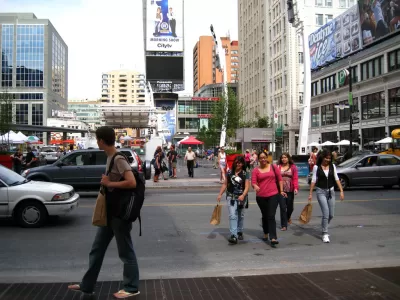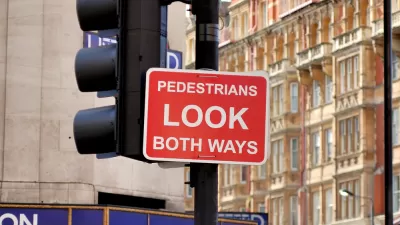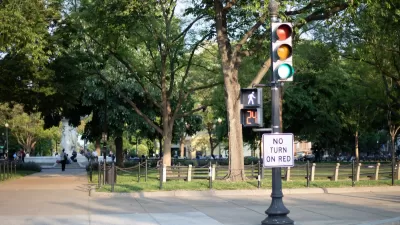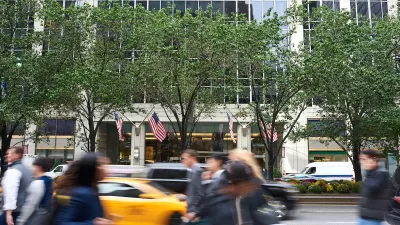Angie Schmitt and Charles T. Brown make nine arguments against the criminalization of jaywalking.

"As two of the top experts on pedestrian safety in the country, we think it is time for cities to consider decriminalizing jaywalking or eliminating the infraction altogether," urge Angie Schmitt and Charles T. Brown.
Schmitt and Brown make their argument in nine points after positioning the gravity of the situation with a reminder of the police killing of Kurt Andreas Reinhold who was stopped for jaywalking. "Black and Brown people, especially men, are routinely targeted by police for jaywalking or simply existing in public space. Often these stops result in an escalating series of fines and fees. In other cases — as in San Clemente, as well as in Sacramento, Seattle and New York City — they can end in violence" write Schmitt and Brown.
With origins in auto company boardrooms, the idea of jaywalking is a concept developed to shift the blame away from reckless drivers who kill pedestrians. Framing jaywalkers as incompetent or stupid, "jaywalking laws succeeded in creating a perverse 'moral basis' for pedestrian deaths in the minds of the public," according to Schmitt and Brown.
The pair point to poor street design as one key cause of pedestrian deaths. "Jaywalking may be the most rational choice given a host of bad options," say the experts. Punishing the jaywalker is unconscionable because, as Schmitt and Brown put it, "[c]riminalizing a rational, predictable response to poor infrastructure is unjust."
FULL STORY: 9 Reasons to Eliminate Jaywalking Laws Now

Planetizen Federal Action Tracker
A weekly monitor of how Trump’s orders and actions are impacting planners and planning in America.

Restaurant Patios Were a Pandemic Win — Why Were They so Hard to Keep?
Social distancing requirements and changes in travel patterns prompted cities to pilot new uses for street and sidewalk space. Then it got complicated.

Map: Where Senate Republicans Want to Sell Your Public Lands
For public land advocates, the Senate Republicans’ proposal to sell millions of acres of public land in the West is “the biggest fight of their careers.”

Maui's Vacation Rental Debate Turns Ugly
Verbal attacks, misinformation campaigns and fistfights plague a high-stakes debate to convert thousands of vacation rentals into long-term housing.

San Francisco Suspends Traffic Calming Amidst Record Deaths
Citing “a challenging fiscal landscape,” the city will cease the program on the heels of 42 traffic deaths, including 24 pedestrians.

California Homeless Arrests, Citations Spike After Ruling
An investigation reveals that anti-homeless actions increased up to 500% after Grants Pass v. Johnson — even in cities claiming no policy change.
Urban Design for Planners 1: Software Tools
This six-course series explores essential urban design concepts using open source software and equips planners with the tools they need to participate fully in the urban design process.
Planning for Universal Design
Learn the tools for implementing Universal Design in planning regulations.
Heyer Gruel & Associates PA
JM Goldson LLC
Custer County Colorado
City of Camden Redevelopment Agency
City of Astoria
Transportation Research & Education Center (TREC) at Portland State University
Camden Redevelopment Agency
City of Claremont
Municipality of Princeton (NJ)





























